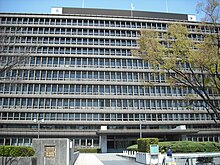Judicial system of Japan
Judicial branch of JapanIn the judicial system of Japan, the Constitution of Japan guarantees that "all judges shall be independent in the exercise of their conscience and shall be bound only by this constitution and the Laws". They cannot be removed from the bench "unless judicially declared mentally or physically incompetent to perform official duties", and they cannot be disciplined by executive agencies. Supreme Court judges, however, may be removed by a majority of voters in a referendum that occurs at the first general election following the judge's appointment and every ten years thereafter. The judiciary was far more constrained under the Meiji Constitution than it is under the present Constitution and had no authority over administrative or constitutional law cases. Moreover, the Ministry of Justice had complete and direct control over the courts' administrative affairs. Nonetheless, Professor John Haley argues that the courts maintained complete independence in the adjudication of particular cases. "Judicial independence from the political branches was emphatically established as a fundamental principle of governance in Article 57 of the Meiji Constitution. Of all branches of government only the courts exercised authority 'in the name of the Emperor' ." Haley argues that this was and remains a matter of great pride for Japanese judges and notes that "placed prominently in all courtrooms was the inscription 'in the name of the Emperor' as a meaningful reminder to imperial officials and subjects alike that the Emperor's judges were not subject to political control or direction."




